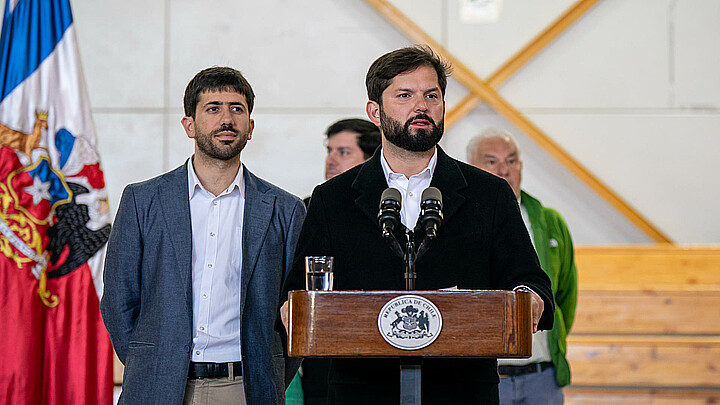Politics
Chile widely rejects new Constitution that could have endangered its free market system
With 99.4% of the votes counted Sunday evening, Chileans widely rejected a proposal for a new Constitution that libertarian critics feared could irreparably endanger its free market system
September 4, 2022 12:45pm
Updated: September 4, 2022 11:32pm
With 99.4% of the votes counted Sunday evening, Chileans widely rejected a proposal for a new Constitution that libertarian critics feared could irreparably endanger its free market system.
The vote stems from a Constitutional Convention that arose from an October 2020 plebiscite in which almost 80% of the population initially voted in favor of changing the Constitution, a treatise that was inherited from the Pinochet regime and later modified during the Lagos government in 2005.
Sunday's rejection of the new Constitution is a victory for those concerned about the current 'pink tide' of leftist economics sweeping across Latin America, as an affirmative vote would have changed the government's balance of power and granted special rights to indigenous peoples.
Those fears have also been amplified during the past few months since the December election of Gabriel Boric, a 36-year old leftist activist who pledged to broaden the state's involvement in the economy.
Recent polls however indicate that Boric's popularity has slipped significantly to 39%, which could be a sign the Chilean majority is souring on Boric's leftist policies, a possible factor in the outcome of Sunday's referendum.
Voting began at 8:00 am (Chile time) and lasted until 6:00 pm with 15.1 million people expected to cast ballots. In total, 38% of voters gave their approval for a new constitution with 62% rejecting it.
Boric headed to the Magallanes region early, reportedly hoping to be one of the first to cast a vote.
“I can guarantee that our will and action, regardless of the result, will be to call for a broad national unity of all sectors, social organizations, civil society, and political parties. We want to listen to all voices to move forward with this process,” Boric said.
Listo el voto! Orgulloso del momento histórico que estamos viviendo como país. Ejerzamos nuestro derecho y deber a escribir nuestra historia mediante el voto con responsabilidad, tranquilidad y mucha alegría. Siempre con más democracia, nunca con menos. Hoy #TuVotoDecide! pic.twitter.com/ZZXn3Oxk5z
— Gabriel Boric Font (@gabrielboric) September 4, 2022
Today, the rejection of the proposal was imposed through a binding referendum and mandatory participation.
The text that was widely rejected consists of 178 pages, 388 articles, and 54 transitory norms available online.
The convention encouraged everyone to act as “informed voters” and Boric sent a similar message saying that the time before the vote, urging citizens to educate themselves on the issues.








